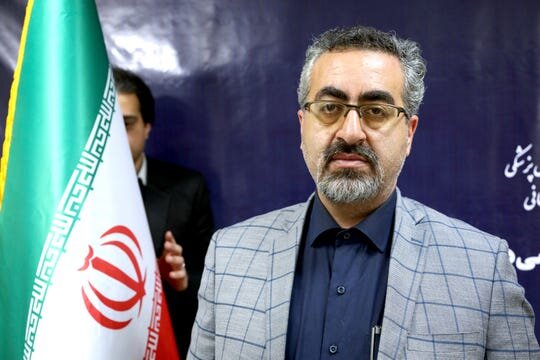Tehran categorically rejects BBC Persian’s coronavirus death toll

TEHRAN — Iran’s Health Ministry has categorically denied the BBC Persian’s claim that at least 210 people have died from coronavirus.
Kianoush Jahanpour, head of the ministry’s Public Relations and Information Center, said on Friday that the BBC Persian is seeking to take political advantage of the coronavirus outbreak.
“Coronavirus has brought suffering and infirmity upon the people of the world. However, it has turned into a source of profit for such satellite channels and others with corresponding roles in Saudi Arabian and Albanian channels,” Press TV quoted Jahanpour as saying, citing IRNA.
“These are seeking to satisfy [their] ignoble political goals by creating anxiety and distress among nations, and are unfortunately making their money this way,” he added.
It came hours after the London-based channel cited unnamed “hospital sources” as saying that 210 have died from the virus.
“The media outlet’s claim is irrelevant. This time too it has drawn a blank,” the Iranian official said, adding that even the number of fatalities among those suffering from acute respiratory syndromes may not reach that high.
Jahanpour said the channel had intentionally come up with the figure to sow fear among Iranians, and reminded that it has stopped short of naming its sources.
He said the Islamic Republic viewed the issue of the outbreak as one that was tied to the public health, and would, therefore, avoid politicizing it.
The country has observed rigor and transparency in its reports on the spread, while many others are either incapable of exactly recording their cases or would deny the number of victims for political reasons, according to the official.
“I have to tell you that Iran is the first and the only country to release its information about coronavirus without any processing and in a fully transparent manner since the beginning of the outbreak,” Jahanpour told Press TV on Friday night.
The level of Iran’s transparency “has taken many by surprise,” including some media outlets, which are known for their siding with Iran’s enemies, and their support for the sanctions that have come to target Iranians, including Iranian patients, he stated, referring to the BBC Persian and similar media organizations.
It was “inhumane” for a media organization that claims to be professional not to name its sources, Jahanpour asserted, reiterating that the British channel’s claims were “politically-motivated” and aimed at disturbing the public opinion and creating “horror” among the Iranian nation.
Iran has formed a special taskforce to confront the outbreak that first emerged in the north-central city of Qom.
Tehran has named the body as the only reliable authority concerning either preventative measures or the correct number of the victims.
Up until Saturday afternoon, the virus that showed up in the central Chinese city of Wuhan late last year has infected 593 people in Iran and claimed the lives of 43 people across the country.
Iranian medical officials have assured that the country would, in the near future, rein in the outbreak, saying that the condition of many patients diagnosed with the virus has improved.
The Islamic Revolution Guards Corps (IRGC) has expressed preparedness to help fight the outbreak, and Defense Minister Brigadier General Amir Hatami has assigned his ministry’s subsidiary organizations with the task of mass-producing liquid disinfectants and protective masks, which are currently in high demand and are being freely distributed by health centers countrywide.
On Thursday, Jahanpour said screening process had gone underway at the entrance to some cities, adding that suspected cases would be quarantined for a space of 14 days.
Also on Thursday, Foreign Ministry spokesman Abbas Mousavi said around 20,000 testing kits, made in cooperative efforts joining the Chinese government and its Red Cross, were to be freighted to the Islamic Republic by air on Friday.
On Wednesday, President Hassan Rouhani also said coronavirus testing kits developed by Iranian experts were undergoing final tests and would enter the mass-production stage in the near future.
MH/PA
